Yet the inclusion of the Pingpuzu was a radical act—arguably the boldest aspect of the whole event. Every preceding government of Taiwan had refused to acknowledge Pingpuzuactivists’ claims to indigeneity. By explicitly mentioning them in her apology, President Tsai gave legitimacy to the idea that Taiwan’s “true” indigenous population — officially only about 530,000, or 2.3% of the total — is significantly larger than recognized."
|
My piece at Ketagalan Media is on the Pingpuzu Aborigines included in Tsai Ing-wen's apology ceremony on August 1: "When President Tsai Ing-wen made a historic apology to indigenous peoples on August 1, she addressed her remarks not only to the country’s 16 officially recognized aborigine (yuanzhumin 原住民) tribes but also to the “Pingpu ethnic group,” or Pingpuzu (平埔族) — descendants of Taiwan’s culturally assimilated indigenous peoples who are not officially recognized by the government as aborigines. In the flood of commentary that has followed Tsai’s apology, the presence of Pingpuzu representatives in the ceremony has attracted little attention. Yet the inclusion of the Pingpuzu was a radical act—arguably the boldest aspect of the whole event. Every preceding government of Taiwan had refused to acknowledge Pingpuzuactivists’ claims to indigeneity. By explicitly mentioning them in her apology, President Tsai gave legitimacy to the idea that Taiwan’s “true” indigenous population — officially only about 530,000, or 2.3% of the total — is significantly larger than recognized." Read the whole thing here.
0 Comments
August 1 is Indigenous Peoples' Day in Taiwan--a day that usually passes without much media attention. This year is different: President Tsai Ing-wen is planning to issue a formal apology on behalf of the Republic of China government to Taiwan's indigenous peoples and to outline her government's indigenous policies. That has now become a partisan issue. Five of the six aborigine (原住民 yuanzhumin) district representatives in the current Legislative Yuan are going to skip the event; the only one to attend is the only district DPP member, Chen Ying (陳瑩). The other two legislators, Kolas Yotaka (谷辣斯·尤達卡) of the DPP and Kawlo Iyun Pacidal (高潞·以用·巴魕剌) of the NPP, are both party list legislators, and so have to take their own party line into greater account. Although they're often overlooked in writing about Taiwan's electoral politics, Taiwan has reserved seats in the Legislative Yuan for aborigine representatives since 1972. Today, representatives from these districts hold more than 5% of the total seats in the legislature (6/113)--if they were all part of the same party, they would be the third largest in the LY, ahead of both the NPP and PFP. For anyone interested in learning more, I have a CDDRL working paper on the history of these seats and the evolution of aborigine representation in the Legislative Yuan. The abstract is below. The Aborigine Constituencies in the Taiwanese Legislature
The Republic of China on Taiwan has long reserved legislative seats for its indigenous minority, the yuanzhumin. While most of Taiwan’s political institutions were transformed as the island democratized, the dual aborigine constituencies continue to be based on an archaic, Japanese-era distinction between “mountain” and “plains” aborigines that corresponds poorly to current conditions. The aborigine quota system has also served to buttress Kuomintang (KMT) control of the legislature: the Democratic Progressive Party (DPP) and “pan-indigenous” parties have been almost entirely shut out of these seats. Nevertheless, aborigine legislators have made a modest but meaningful difference for indigenous communities. The reserved seats were initially established during the martial law era as a purely symbolic form of representation, but during the democratic era they have acquired substantive force as well. Taiwan’s indigenous peoples have not always been well-served by their elected legislators, but they would be worse off without them. 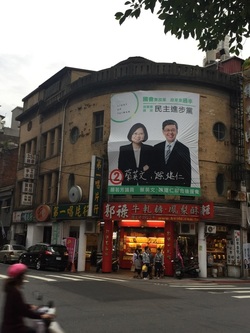 Campaign poster of Tsai Ing-wen and her running mate, Chen Chien-jen, in Datong District in Taipei, January 2016. Campaign poster of Tsai Ing-wen and her running mate, Chen Chien-jen, in Datong District in Taipei, January 2016. I've been going through some of the 2016 Taiwan elections data for another project, and I came across something that I haven't seen noted elsewhere. In the presidential vote, Tsai Ing-wen actually improved her vote shares more in the north than elsewhere in Taiwan. Nationally, she won 45.63% of the total vote in 2012, and 56.12% in 2016, for a net aggregate swing of 10.49%. But this increase wasn't uniform across Taiwan. Her worst performance relative to 2012 was in Penghu, where her vote share increased from 45.65% to 50.81%, for a net swing of only 5.16%. Her best was in Taipei, where she increased her vote share from 39.54% to 51.96%, for a net swing of 12.41%, which gave her an absolute majority of the vote. Again, that was in Taipei, which was supposed to be the bluest stronghold of them all, and the most resistant to the appeal of the DPP ticket! (Or at least that's what this idiot thought.) Moreover, Taipei wasn't an outlier. From Keelung all the way through Miaoli, Tsai's vote share increased more in every single northern jurisdiction than it did nationally, as the table below shows. By contrast, the swing toward Tsai was lowest in the south and east/island jurisdictions. And central Taiwan, where I thought the swing would be largest, was actually slightly behind the national average. (Perhaps that's one of the reasons several endangered KMT incumbent legislators in Taichung and Nantou held on to win re-election. More on that in another post.)
This result is surprising in part because it's the opposite of what happened in 2012, when the national swing toward Tsai was 4.24%. In that election, Tsai's gain was lowest in Taipei at 2.58%, and highest in Pingtung at 4.88%. In other words, in 2016 Tsai improved the most in precisely the places where she improved the least in 2012. Nowhere is this more apparent than in Taipei itself: a DPP majority there was hard to imagine as recently as two years ago. 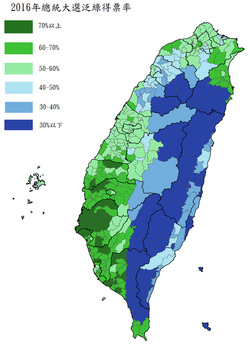 Taiwan 2016 presidential election results by township: not a blue north anymore. Taiwan 2016 presidential election results by township: not a blue north anymore. The North Is No Longer Blue Tsai's wins in the north are also surprising because the conventional wisdom has long held that Taiwan has a strong regional divide, with a deep blue north, deep green south, and swing districts in the middle. This is obviously a simplification, but it's so widely accepted among the political commentariat in Taiwan that there's even a wikipedia entry in Chinese for the phrase, "blue north, green south" (beilan, nanlü 北藍南綠). The accepted explanation for these regional political differences is that they reflect socioeconomic and sub-ethnic ones: there are more waishengren in the north and east, aborigines in the east and central highlands, and a concentration of Hakka voters in Miaoli and Hsinchu Counties who have tended to support pan-blue candidates, while the Hoklo benshengren heartland of Tainan has been the DPP's strongest area. But some research has found region to be a significant independent predictor of vote choice even accounting for partisanship, national identity, age, occupation, attitudes toward cross-Strait relations, and so forth. Why would this be? Part is probably a "local hero" effect--national candidates do better than average in their hometowns because of their long-standing personal connections there that trump partisan affinities. Part is certainly a factional story: when local factions switch sides they can bring a big chunk of votes with them all the way up to the presidential level. But while these effects certainly have existed in local and legislative elections for a long time, it's not obvious that they consistently matter in presidential ones. Does Political Geography Still Matter in Taiwan? The way that Tsai won in 2016 leads me to think we should reconsider how, or even whether, geography has an independent effect in presidential elections. It's not self-evident that presidential vote choice in 2016 had anything to do with where voters lived, once we take into account all the usual demographic variables. There was no pan-blue firewall north of the Choshui River, and the DPP's win was clearly not built on turning out more core supporters in pan-green strongholds in the south. Instead, the swing data suggest a shift in the same groups of voters toward Tsai and away from the KMT all over the island. (Voting for the legislature is a different matter--I'll tackle that in a separate post.) Granted, the swing toward Tsai was not as uniform as in 2012, when it ranged between only 2.58 and 4.88%. But still, in every single locality Tsai won at least 5% more in 2016 than she did four years ago. That suggests, for at least the last two elections, voters who switched their votes to Tsai did so because of factors not correlated with where they lived. The best illustration of the irrelevance of geography to vote choice is what happened in New Taipei, where Eric Chu was, and still is, the mayor. He was re-elected there in 2014, holding on during a green wave that flipped most of the other local executives to the DPP. If a candidate's local connections matter at all, then Chu probably should have been able to deliver a hometown bump. Yet a little over a year later he won only 1/3 of the vote in New Taipei, winning 250,000 votes less than he did in the mayor's race, a lower share than the 37.5% he got in Taipei City proper and only 2 points above his island-wide total. And as the figures above show, Tsai Ing-wen improved more in New Taipei than she did nationally--not the result we'd expect if Chu was enjoying some kind of home-court advantage. 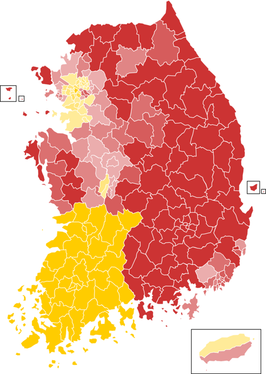 Regional voting patterns in South Korea: Jeolla in the southwest, Gyeongnam in the southeast. Regional voting patterns in South Korea: Jeolla in the southwest, Gyeongnam in the southeast. Now THIS is What a Party Stronghold Looks Like Finally, consider the comparative angle. There's a country not far away that demonstrates exceptionally strong regional effects on voting behavior: South Korea. In the last presidential election there (in 2012), the opposition candidate Moon Jae-in won at least 85% of the vote in the three provinces that make up the southwest region of Jeolla, while the incumbent party candidate Park Geun-hye won over 80% in two provinces in the southeast region of Gyeongsang. That is a stark regional divide that has been present since the beginning of the democratic era in Korea. By this standard, Taiwan doesn't look very divided by geography at all. Does Where You Live Affect Who You Support for President? In fact, it's worth considering whether the "blue north, green south" trope has outlived its usefulness as a guide to voting behavior in Taiwan. The Taiwanese media often writes election narratives that emphasize geography as the key to understanding voting patterns in presidential elections, with frequent discussion of "battleground regions" and "swing districts." And political scientists, too, routinely use the language of electoral geography to talk about presidential campaigns. (I'm guilty of this too. For other instances, see here, here, and for a kick, this wikileaks cable from AIT.) But if you think about this a bit, it's an odd way to characterize voting for a single national office. Taiwan doesn't have an electoral college, so an extra vote for Tsai in Penghu is worth the same as one in Taipei, or Taichung, or Hualien, or anywhere else in Taiwan. When we talk about "swing regions" we are implicitly underemphasizing factors that don't vary much by location and playing up ones that do, like factional ties. And I'm starting to think those other, non-geographic factors are where the real story is at, particularly differences between age cohorts. Something to keep in mind as we pour over the post-election survey data.  On March 1, the Taiwan Democracy Project will host the next event in this year's speaker series, a talk by Richard C. Bush of the Brookings Institution. The talk is co-sponsored with the U.S.-Asia Security Initiative in the Walter H. Shorenstein Asia-Pacific Research Center at Stanford. Mr. Bush will be speaking about possible changes in cross-Strait relations in light of the results of the January 2016 elections in Taiwan, and their implications for U.S. policy. The talk is entitled: The January Taiwan Elections and the Implications for Cross-Strait Relations. Details are below. Abstract
Taiwan’s domestic politics, particularly presidential elections, has been the main driver of the island’s relations with China for two decades. The 2016 elections, in which the Democratic Progressive Party, led by Dr. Tsai Ing-wen, won both the presidency and majority control of the Legislative elections, promises to be no exception. Although PRC intentions under President Xi Jinping are far from certain, some change from the state of play under the current Ma Ying-jeou administration seems fairly certain, with implications for U.S. policy. Bio Richard Bush is a Senior Fellow at the Brookings Institution and Director of its Center for Northeast Asian Policy Studies, and the Chen-Fu and Cecilia Yen Koo Chair in Taiwan Studies. He came to Brookings in July 2002 after nineteen years working in the US government, including five years as the Chairman and Managing Director of the American Institute in Taiwan. He is the author of a number of articles on U.S. relations with China and Taiwan, and of At Cross Purposes, a book of essays on the history of America’s relations with Taiwan, published in March 2004 by M. E. Sharpe. In the spring of 2005, Brookings published his study on cross-Strait relations, entitled Untying the Knot: Making Peace in the Taiwan Strait. In 2013, Brookings published his Uncharted Strait: The Future of China-Taiwan Relations. 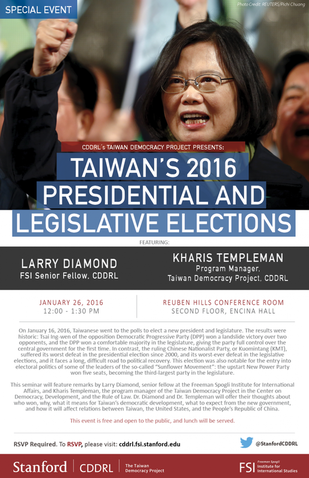 Apologies for the lack of posts after the election--I'm still catching up with my day job after an exciting and fruitful trip to Taiwan. If you're jonesing for some election reactions, plenty of other people have already weighed in on what happened and what the results mean. (Here's one long list.) We'll no doubt be analyzing and talking about the results of these elections for the next several years, but I'll try to write some reflections on the actual results over the next few weeks, in addition to some thoughts on developments in the Legislative Yuan and appointments to President-elect Tsai's incoming government. In the interim, here are a couple links. I had the opportunity to give some initial thoughts at an event in Taipei the day after the elections; here is the video from that roundtable, sponsored by Ketagalan Media. We also held an event at Stanford last Tuesday at which Larry Diamond and I had a bit more time to reflect on the elections, the health of Taiwan's democracy, and what's likely to come next; slides and video from that seminar can be found at the CDDRL event page. I'll repeat my main take-away from both those events: this was a (mostly) encouraging demonstration of Taiwan's democratic process, whatever your ideological or partisan predilections might be. President-elect Tsai Ing-wen will have a large DPP majority in the legislature, and the prospects for reform of aspects of the legislative process are that much better for it. The impressive victories of the New Power Party in its district races are also an encouraging sign: the NPP grew out of the student-led protests of 2014, and their success indicates that much of that opposition to the Ma administration has been channeled into the electoral and now the legislative process rather than remaining in the streets. And, this bears repeating, Taiwan's elections management remains a model of efficiency, accuracy, and probity--I never fail to be impressed at how smoothly the voting, counting, and reporting of the results takes place. I wish elections in the United States were even half as well run. On the less positive side, turnout was way down--66.2%, below even the 2014 local elections. And there's that pesky matter of a nearly four-month gap between the seating of the new legislature on February 1 and the inauguration of the new president on May 20, which is creating a real constitutional challenge. That badly needs to be fixed in this next term, perhaps by Tsai offering to shorten her own term as a one-off concession in a larger package of reforms. Finally, now that the new Legislative Yuan has been formally sworn in, it's important to note that Tsai has just secured the election of a new DPP speaker, Su Jia-chyuan (蘇嘉全), who's a close personal ally--an outcome that required the incumbent DPP caucus leader, Ker Chien-ming (柯建銘), to relinquish his claim on the position. In that vote, no DPP members defected from the party, and the NPP caucus also voted in Su's favor. That's an auspicious start to what is going to be a fascinating period in legislative politics in Taiwan. Tsai Ing-wen and the DPP are headed for a historic victory in Saturday’s elections, and the battle has already begun to define the narrative about what that means. One fairly common refrain is that this likely outcome will presage a fundamental realignment of the party system around issues beyond the blue-green divide over cross-Strait relations.
I’m skeptical that we are about to see this kind of realigning election, despite the attention given to the campaigns of the so-called “Third Force” parties. I’m also skeptical that this result will be the death knell for the KMT as a political party capable of winning elections. The KMT's coming defeat clearly reflects deep unhappiness with Ma Ying-jeou and the KMT’s rule over the last eight years, intensified by a spectacularly ill-timed economic downturn over the last few months (at least if you are a KMT member!) But an unpopular leader, toxic party brand, and disillusioned supporters are not fatal to major party survival, as the DPP showed after its 2008 electoral thrashing. So while a KMT recovery is not assured, and will at a minimum require some major leadership shakeups, we shouldn't expect the party simply to fade away, and for all those pan-blue supporters (still at least 30 percent of the electorate) to suddenly become fans of the DPP or one of the new parties. Of course, I could be totally wrong--I'm just some guy on the internet, after all. But either way, we'll know a lot more soon: elections have a nice way of splashing everybody with a cold dose of reality. The results of the election this Saturday will give us the most concrete evidence we'll have to evaluate these competing narratives. So, in the interest of intellectual honesty, let me lay out my own expectations about what will happen, and what it means. Beyond who wins and loses, here's what I'll be watching most closely to see where Taiwanese politics is headed. Some of the sharper commentary on the upcoming election has noted how livelihood issues, such as a growing wealth gap, soaring housing prices, and stubbornly high youth unemployment rate, are a big part of the reason public opinion has swung so dramatically against the KMT over the last two years, rather than cross-Strait relations. If I can hammer one thing home to outside observers about this election, it's that domestic issues, rather than cross-Strait relations, are what will decide this coming election. The outcome is not really a referendum on Taiwan's relationship with China, or an indication of a sudden surge in Taiwanese nationalism, but instead reflects deep concerns with "bread and butter" issues. So what do I mean by bread and butter issues? Well, the commentary linked above is focused mostly on the concerns about income and wealth distribution that have been salient for a while and have gotten a lot of press in recent years. But in addition, there's something much more recent and fundamental working against the KMT right now: the economy is just not doing very well. Here's a sample of the (English-language) economic news reports coming out of Taiwan over the last few months: Taiwan is in a recession, and it's China's fault -- Forbes (December 1) Weaker growth exposes downsides of China ties -- The Economist (November 14) Industrial production falls 15% -- Taipei Times (November 20) Unpaid leave hits 3-year high -- Taipei Times (November 17) Taiwan nears recession, exports to China slump -- (October 31) Taiwan exports in decline -- Voice of America (October 16) GDP growth forecast cut to below 1% -- FocusTaiwan (October 15) Tax revenue falls by 14.3% over previous year -- Taipei Times (October 13) Rising pessimism about economy -- China Post (October 12) TISR poll: 81% believe economy in bad shape -- via Solidarity.tw (September 14) TAIEX suffers worst-ever one-day drop -- Taipei Times (August 25) What all that reporting is trying to say can be summed up succinctly by the chart at the top of this page: Taiwan's economy is now rather suddenly headed into a recession, if it's not already in one. And that makes this a terrible moment to be running as an incumbent party.  Say it, Bill Say it, Bill Economic Voting in Democracies. The theory of economic voting behind this claim is that economic conditions powerfully shape electoral outcomes in democracies everywhere. As Michael Lewis-Beck puts it in a great review article, "good times keep parties in office, bad times cast them out." I should note that the evidence for this effect and its size varies a lot across countries, and the sometimes puzzling variation in the size of economic effects remains an open area of inquiry in political science. For instance, when the government is supported by a coalition of several parties, it's harder for voters to figure out which members deserve the blame for bad performance. The lack of a credible alternative to the incumbent--an opposition party or candidate who appears likely to do better--also leads to a weaker effect. (The opposition to the LDP in Japan has long struggled with a credibility problem, for instance.) And sometimes it's clear to voters that governments don't have much influence at all over bad economic outcomes because of global factors beyond their control, so they are less likely to punish incumbents at the ballot box. In addition, voters turn out to have really short memories (i.e. they're "myopic," in the jargon of the discipline): the performance of the economy over the last six months matters a great deal more than the performance over a government's whole term in office. This is probably why the Conservatives in Britain, for instance, recently won re-election after presiding over an austerity-induced downturn during much of their first term. Nevertheless, the basic claim, that economic downturns motivate voters to vote out incumbent governments when they can, is quite robust. In the United States, in fact, the state of the economy in the few months before a presidential election appears to be the single most important factor in who wins, more than the candidates themselves, their parties' policy platforms, or their campaigns. Economic Voting in Taiwan? So what about in Taiwan? Given the current political environment, we should expect the state of the economy to have a major impact on the upcoming election. Taiwan right now has:
Bad Economy = Bad Polls. At about the same point that the economy started to sour over the last six months, Taiwan's presidential election turned from a competitive race into a rout. As the Taiwan Indicators Survey Research survey reproduced above shows, at the beginning of June, one could at least imagine a combined pan-blue effort that would give Tsai Ing-wen a real race: support for Hung Hsiu-chu and James Soong together was at 44.8%, above Tsai's 37.1%. But then what happened? Support for both cratered.
Part of that was Hung's own shortcomings as a candidate, but once she was replaced by Eric Chu, the KMT should have seen a real bounce. It hasn't. Chu is now down around 20% in the polls. That's likely to go up somewhat as pan-blue voters come back to the fold, and there are Some of this decline in the polls is undoubtedly self-inflicted--the fiasco with Hung and the presence of James Soong in a spoiler's role yet again could probably have been avoided. But even if Eric Chu had accepted the nomination back in March, and Soong hadn't joined the race, I still don't think this would be much of a contest right now. The reason is those economic figures: Chu is the standard-bearer for a party that in voters' eyes is squarely to blame for this economic downturn, and they're going to have a chance in less than three weeks to weigh in. Tsai Ing-wen is not Ma Ying-jeou or the KMT, and in these circumstances that looks like all she needs to win a comfortable victory. Cross-Strait policy, debate performances, campaign promises, VP selections--none of it is going to matter. In this election, it really is about the economy. One of the major advantages the DPP has had over the KMT in this election cycle is its cooperative relationship with the smaller upstart parties on its flanks: the Taiwan Solidarity Union (台聯), the Social Democratic Party-Green Party (社會民主黨 - 台灣綠黨) alliance, and above all the New Power Party (時代力量). The TSU is the DPP's traditional ally, and the two worked fairly closely together in 2012 to coordinate nominations: the TSU avoided running candidates against DPP nominees in the districts, and the DPP encouraged deep green voters to consider casting a party list vote for the TSU. That strategy paid off for the pan-green camp when the TSU won 8.96% of the party list vote, which returned it to the LY after a four-year absence. And in the districts, the DPP candidates won all but four constituencies that Tsai Ing-wen carried (and six that she didn't.) Unfortunately for the TSU, it isn't looking so hot in the polls right now and probably won't win the five percent of the party list vote it needs to retain seats in the legislature. It's likely to be replaced by the NPP, which was founded only about a year ago and is running several high-profile candidates in district races. This could have been a major problem for the DPP: a new pan-green party with a strong pro-independence slant and brash leadership, targeting the same youth vote that the DPP is counting on to help it win a majority in the LY, and without a past history of coordination in elections. Instead, the DPP leadership recognized this threat early on and worked out a cooperation agreement: the party would yield several districts to the NPP (only three, as it turned out), and the NPP would only campaign in those districts to avoid splitting the pan-green vote elsewhere. The arrangement has worked well enough that Tsai Ing-wen is even showing up to appear with some of the NPP candidates. The DPP has pursued a similar approach to cooperation with candidates from other groupings, yielding several other seats to small parties. Via Solidarity.tw, here's the list of small-party candidates the DPP has endorsed:
11 seats seems like a lot to yield, right? Isn't this a costly signal that the DPP is willing to weaken its shot at a majority in order to defeat the KMT and forge a broad coalition in the LY? Well, let's step back and see just how crucial these seats are to a DPP majority. Here's the list of district seats ranked by how large Tsai Ing-wen's lead or deficit was in 2012, with the yielded districts marked in yellow (all of them are currently held by the KMT): Remember that the DPP needs about 41 district seats to win a single-party majority in the LY. Notice where almost all the yielded seats lie? Below #41. Waaaaay below, in fact. If some of these seats go to third-party candidates, the DPP is already going to have a majority all by itself. I noted this in a previous post, but it's worth reiterating here: this is smart politics by the DPP. They're ceding races that are not very competitive to third parties and independents in exchange for non-compete agreements in the critical races in the 25-45 range. (In fact, this ranking probably understates just how difficult some of these seats are: Taipei is more reliably blue than the rest of the island, so the swing toward Tsai there is likely to be lower than elsewhere.)  Tsai Ing-wen campaigns with Hung Tzu-yung in Taichung, November 2015. (Image credit: Storm Media) Tsai Ing-wen campaigns with Hung Tzu-yung in Taichung, November 2015. (Image credit: Storm Media) How Much is One District Worth? One "yellow" district is high up the list, though, and it's a very interesting one: Taichung 3 is ranked #30. What's going on there? The NPP has nominated Hung Tzu-yung, and the DPP is not running a candidate. Like the NPP candidates elsewhere, Hung is already a well-known figure in Taiwan: she is the sister of Hung Chung-chiu (洪仲丘), a military conscript who died in July 2013 as the result of harsh punishment by his superiors. (The incident triggered large protests, the resignation of the Minister of National Defense, and the rapid passage of a far-reaching reform of the military justice system.) By generic partisan lean, Taichung 3 is by far the most competitive district of any the DPP has yielded; a swing of just 2.33% toward Tsai would turn it green. If Hung can run anywhere close to Tsai's 2016 total in this district, she should win it easily. So, of the NPP candidates running for district seats, it's Hung, not Huang Kuo-chang (in New Taipei 12) or Freddy Lim (in Taipei 5), who is best positioned to win in 2016. It's likely that the threat of NPP candidacies in critical races elsewhere gave them the bargaining power to get the DPP to yield Taichung 3, and as a result they're well-positioned to win at least one district seat, in addition to whatever they get from the party list. From the DPP's perspective, this is a good trade as well: they cede one competitive district for a full non-compete agreement everywhere else. And with one prominent exception, the deal has held. 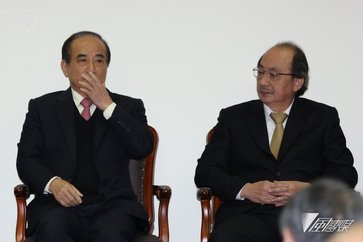 LY Speaker Wang Jin-pyng and DPP party caucus leader Ker Chien-ming. (Credit: Storm Media) LY Speaker Wang Jin-pyng and DPP party caucus leader Ker Chien-ming. (Credit: Storm Media) The Curious Case of Hsinchu City That exception is Hsinchu City, where the DPP Legislative Yuan party caucus leader Ker Chien-ming (柯建銘) is running against both the KMT nominee Cheng Cheng-chien (鄭正鈐), a city council member, and the NPP's Chiu Hsien-chih (邱顯智). Ker is widely disliked by the NPP's core supporters, and Chiu has refused to withdraw from the race, creating the possibility of a serious pan-green split in the vote. With a big enough swing (11-12%) toward Tsai, this seat could be competitive, but it's likely to be close even then, so Chiu's candidacy could well be fatal to Ker's chances. What's especially intriguing about this race is the possibility of an ulterior motive for the NPP, and possibly some elements of the DPP, too. As party caucus leader, Ker is in line to be the next speaker of the LY if he wins re-election, and he's likely to try to block any meaningful reforms of the cross-party negotiation mechanism (政黨協商) that has given the current speaker, Wang Jin-pyng, tremendous influence over the legislative process. That in turn could prevent Tsai Ing-wen from getting much of her policy agenda through the LY. I have no idea if Chiu's campaign is a deliberate strategy to take out Ker, but from the NPP's point of view, preventing Ker from winning re-election might just be worth splitting the pan-green vote and throwing the seat to the KMT. Some of that animosity clearly comes from Ker's long history of deal-making in the LY and his role as the key DPP member in closed-door cross-party negotiations. For instance, it's easy to forget that he was actually at the center of the special influence case that caused the open rift between Wang Jin-pyng and Ma Ying-jeou--it was a case against Ker that Wang leaned on prosecutors not to appeal. By the way, isn't it curious that Ker is fighting for re-election in such a tough place for the DPP? (Tsai lost here in 2012 by 21 points.) How did this happen to the party caucus chair?! Ker was previously a party-list legislator for two terms, so by DPP party rules he has to run in a district now. Unlike the KMT, which flagrantly violated its own rules to allow Wang Jin-pyng to run for a third time as a list legislator, the DPP didn't yield on this point. But why Hsinchu? Well, that's where Ker is originally from; he won several consecutive races there under the old SNTV system. Now that the electoral system has changed to single-member plurality, though, he's got a much tougher challenge. I'm a bit surprised that Ker didn't manage to parachute into an easier district somewhere else. The fact that he's not only running in Hsinchu but also facing a challenge from the NPP suggests some significant opposition to him from elsewhere within his own party. But if he overcomes the odds and wins his race, he is going to owe Tsai Ing-wen very little, and he may have a political axe to grind with her or some other elements of the DPP for putting him in such a tough position. If he ends up as LY speaker, he could quite plausibly be a DPP version of Wang Jin-pyng during the Ma era: a powerful and independent-minded leader whose first priority is protecting his own interests, not those of the president or his party. Given how badly that turned out for Ma Ying-jeou and the KMT, this race could have an outsized impact on relations between Tsai and the DPP caucus in the LY after the election. It's worth watching closely. UPDATE 2015.12.30: Shortly after I wrote this, allegations of vote-buying were levied against the local KMT branch and its candidate, Cheng Cheng-chien, for holding a free public banquet in a local night market for KMT members and local residents. Pretty brazen, and stupid.
In my previous post, I argued that the DPP's vote share in the legislative district races was likely to track Tsai Ing-wen's vote share fairly closely. From that basic intuition, I came up with a rank list of seats indicating how many districts the DPP would win with a given vote share for Tsai. That forecast rested on several assumptions:
I spent much of the last post defending assumption 1. Here I want to relax assumption 2, that Tsai's vote share is going to increase uniformly across all districts. That's certainly not going to be true in a technical sense, but to what degree will it be violated? The conventional wisdom about Taiwan's electoral geography is that the the north is more solidly blue than other parts of Taiwan, so the KMT's vote share will decline less in Taipei than in, say, Tainan or Pingtung. But how much less is hard to predict. Let me put the punch line up front: I don't think Tsai's increase in vote share is going to vary much by locality. Evidence follows after the jump. 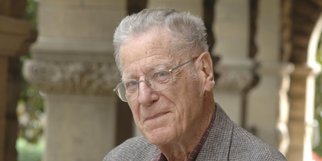 This post is long overdue. Henry S. "Harry" Rowen died suddenly on November 12, 2015. He was an emeritus professor of public policy and management at Stanford and a senior fellow at the Hoover Institution. Despite his age he maintained an office in the Asia-Pacific Research Center in Encina Hall, and he remained a common presence at Freeman Spogli Institute and Hoover events up until his passing. He was also involved in the Taiwan Democracy Project during its earliest days from 2003-2006, and its existence owes much to his interest and support. On a more personal note, I will remember him best for his bold prediction in an article published in 1996 in the National Interest that China would become democratic by about 2015--a piece I still remember reading in my Chinese politics class as a college sophomore. He remained optimistic about China's political trajectory through the end of his career. A fuller exposition on his long and storied career in government and as the president of the RAND corporation is here in the New York Times. |
About MeI am a political scientist with research interests in democratization, elections and election management, parties and party system development, one-party dominance, and the links between domestic politics and external security issues. My regional expertise is in East Asia, with special focus on Taiwan. Archives
January 2024
Categories
All
|
||||||
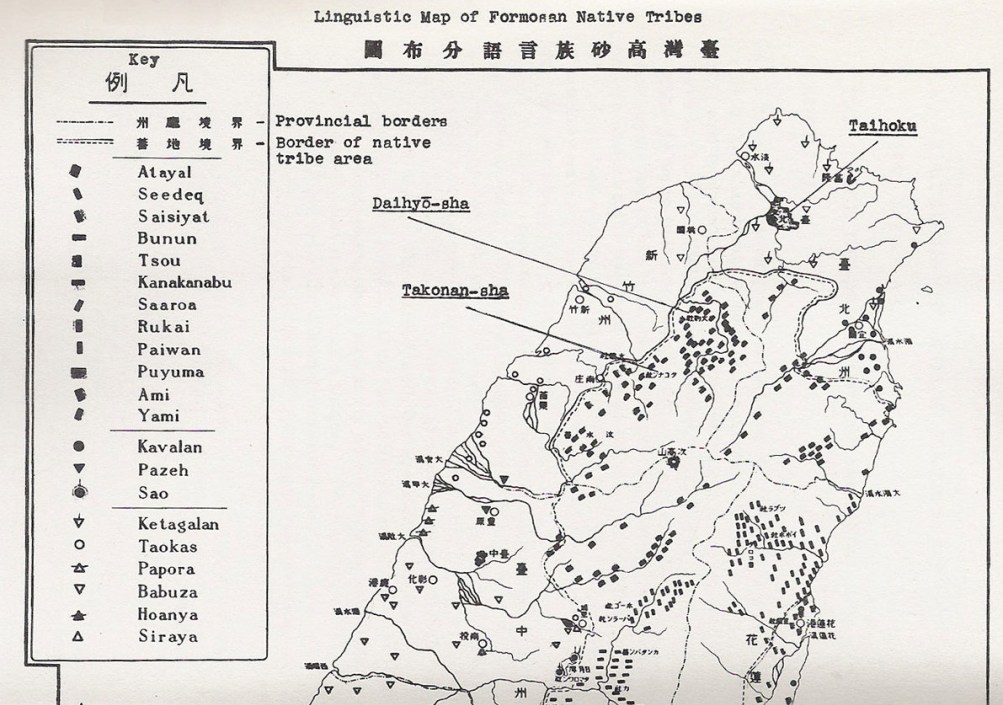
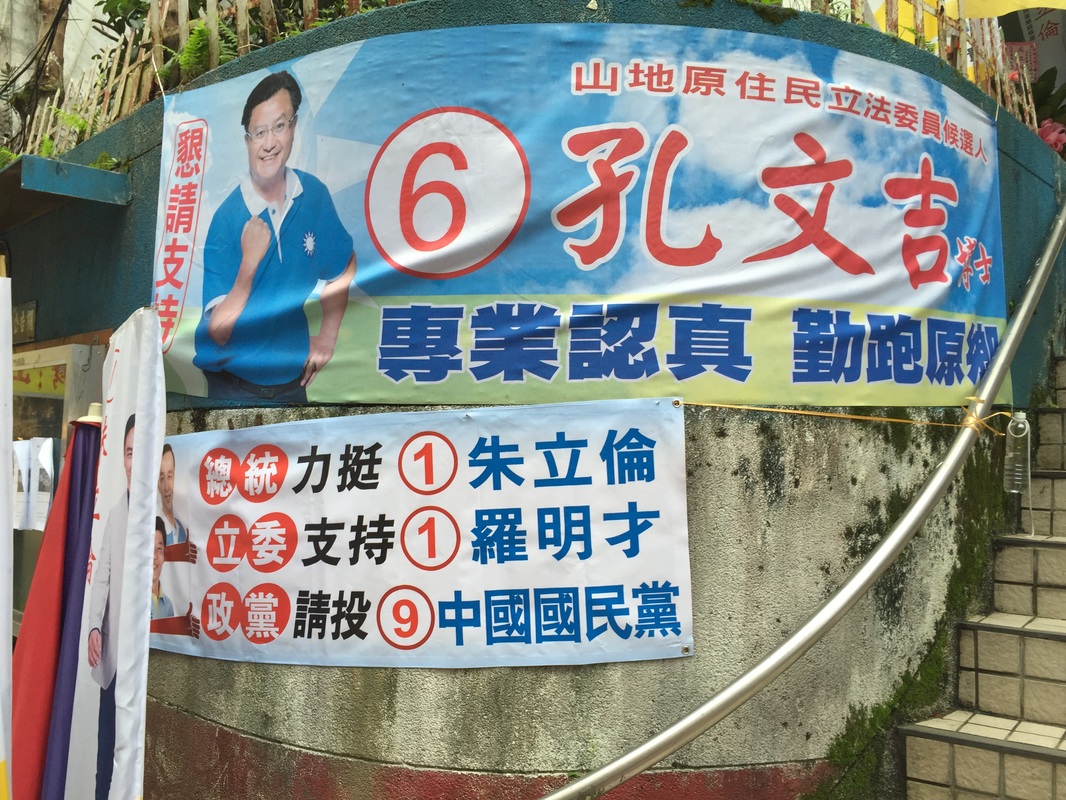
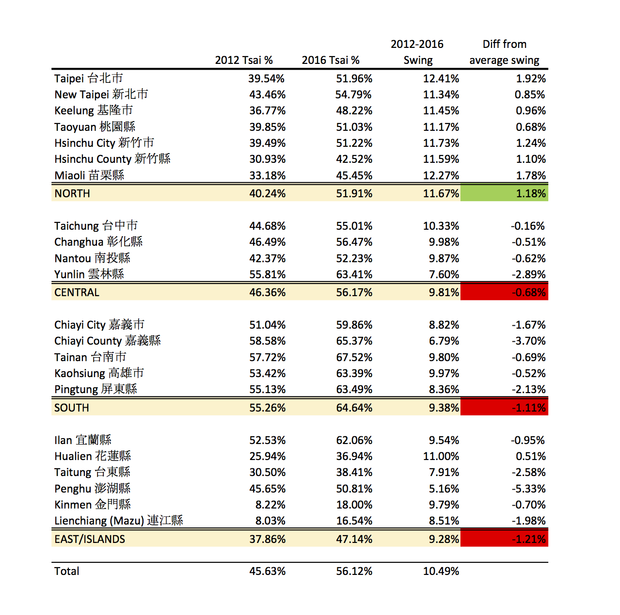
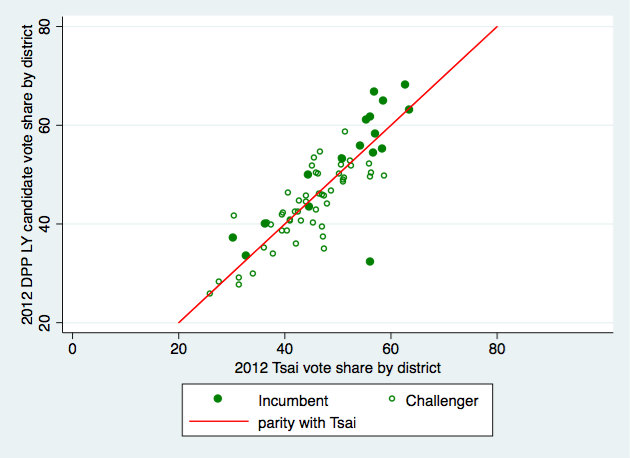
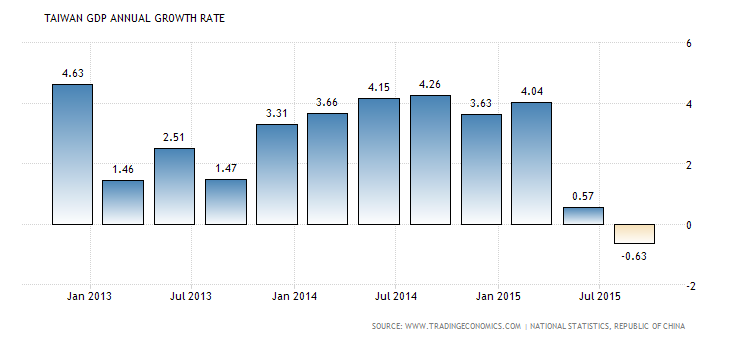
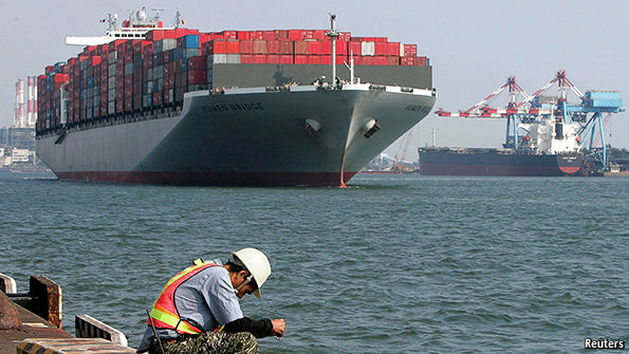
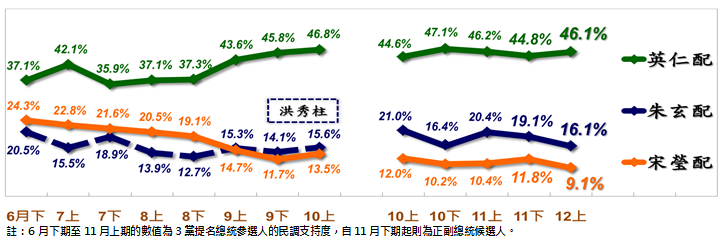
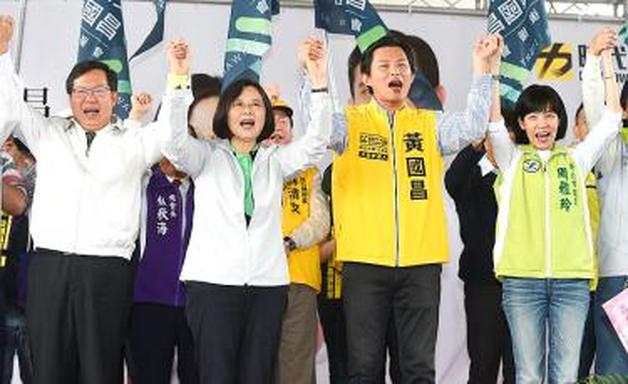
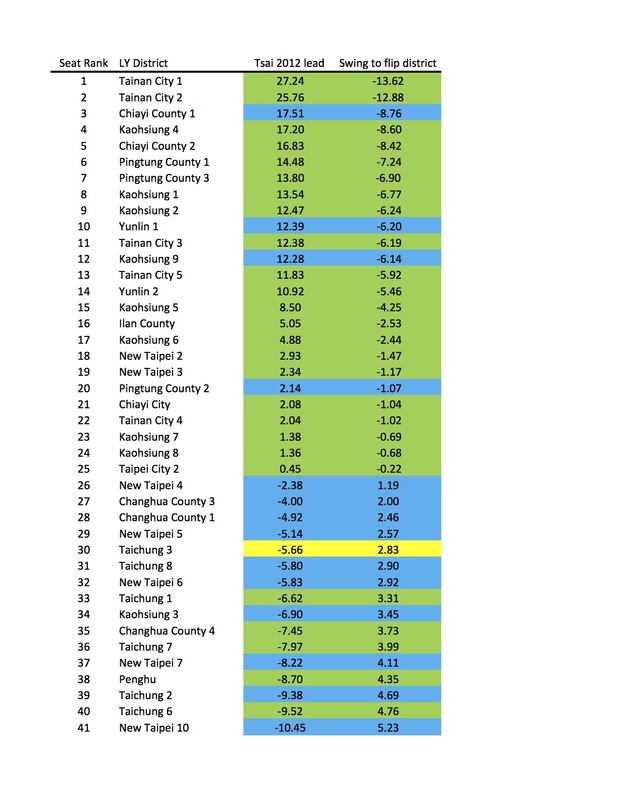
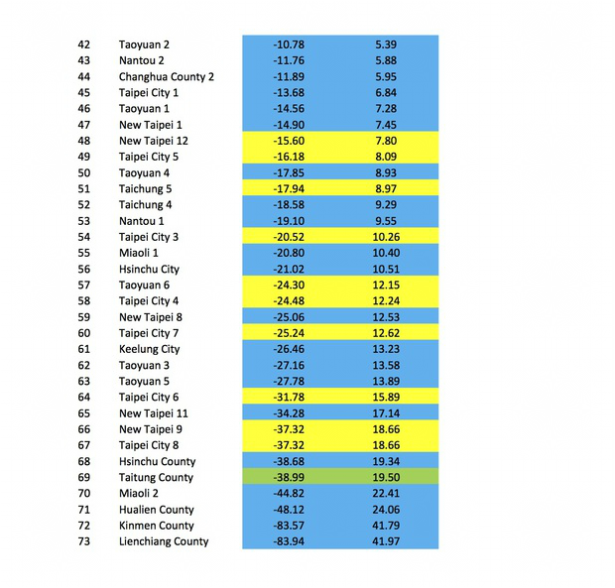
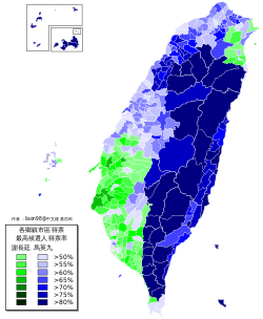
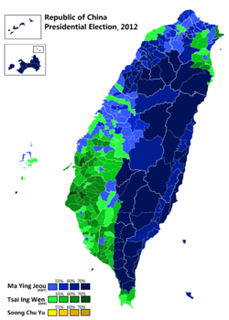
 RSS Feed
RSS Feed
